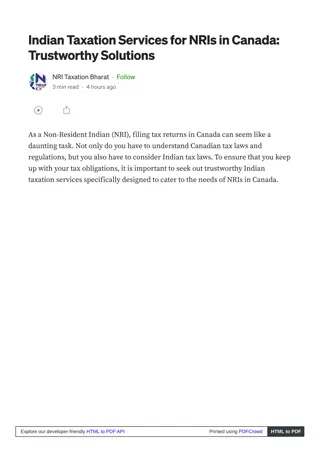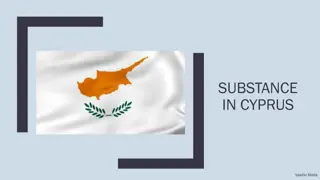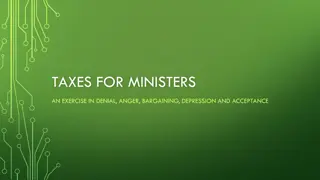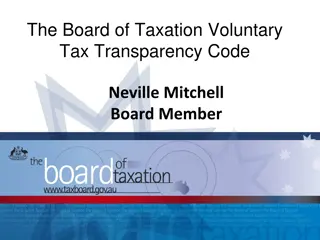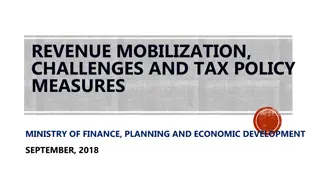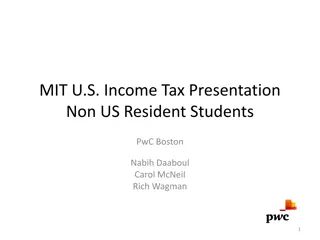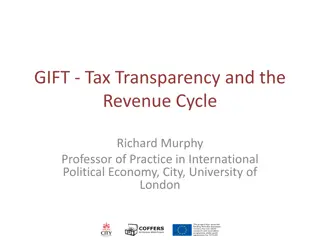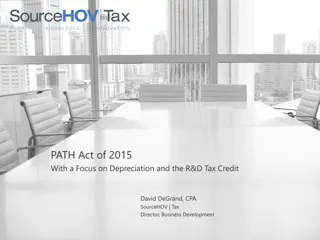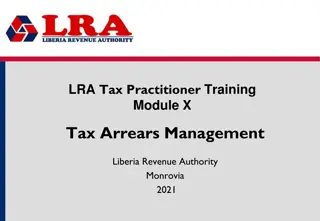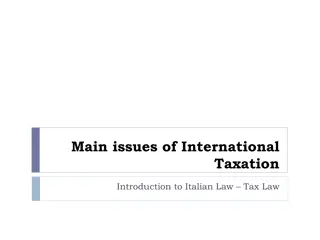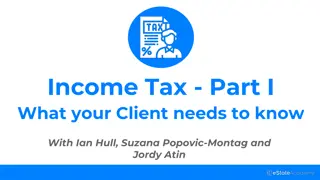International Cooperation on Tax: Challenges, Tools, and Progress
The International Tax Landscape has evolved significantly post-2008 financial crisis, with increased tools to combat tax avoidance and evasion. Developing countries face challenges but have access to new tools like the Multilateral Convention on Mutual Administrative Assistance in Tax Matters and Automatic Exchange of Information. BEPS provides reform in international corporate tax. Inclusion in global fora like the Global Forum on Transparency and Exchange of Information for Tax Purposes is key for progress.
Download Presentation

Please find below an Image/Link to download the presentation.
The content on the website is provided AS IS for your information and personal use only. It may not be sold, licensed, or shared on other websites without obtaining consent from the author.If you encounter any issues during the download, it is possible that the publisher has removed the file from their server.
You are allowed to download the files provided on this website for personal or commercial use, subject to the condition that they are used lawfully. All files are the property of their respective owners.
The content on the website is provided AS IS for your information and personal use only. It may not be sold, licensed, or shared on other websites without obtaining consent from the author.
E N D
Presentation Transcript
INTERNATIONAL COOPERATION ON TAX Joseph Stead Senior Policy Analyst Global Relations and Development Centre for Tax Policy and Administration Nairobi 13 March 2019
The International Tax Landscape The International Tax Landscape is very different from before 2008 financial crisis Significant increase in tools available to all countries to address tax avoidance and evasion Significant change in participation in international fora where international tax is discussed More change to come Challenges remain especially for developing countries 2
New Tools Available Exchange of Information Previously bilateral treaties Very few with tax havens Often required sacrifice of taxing rights too Multilateral Convention on Mutual Administrative Assistance in Tax Matters 127 signatories (14 African) facilitates information exchange among them all Much simpler way for developing countries to access information no need to sacrifice tax base 3
New Tools Available Exchange of Information Automatic Exchange of Information Addresses the unknown unknown problem can t ask if you don t know what to ask for Information on financial accounts held offshore (estimates that 30%+ of African owned wealth held offshore) Over USD 90 billion raised globally in voluntary disclosure in advance of first exchanges 102 countries committed Developing countries face political and capacity barriers to benefitting but progress is being made 4
New Tools Available - BEPS First major reform in international corporate tax in 60+ years Provides the tools to address a number of the most aggressive forms of MNE tax avoidance Excessive interest deductions Use of certain types of tax incentives Treaty shopping 4 minimum standards providing consistent, widespread implementation of tools that have cross-border impact 5
Inclusion in international fora Global Forum on Transparency and Exchange of Information for Tax Purposes 154 members 25 African Inclusive Framework on BEPS 129 members 23 African 6
More changes to come The challenges of digital economies require further changes Where is value in the digital world? Inclusive Framework looking to produce consensus by 2020 Several proposals currently on the table including GLOBE (akin to global minimum tax) 7
Challenges Capacity International tax is complex needs (valuable) skills Political will Legislation, treaties, and changes of behavior are needed requires political commitment, not always there, not always sustained 8
THANKS QUESTIONS? Joseph Stead Senior Policy Analyst Global Relations and Development Centre for Tax Policy and Administration Nairobi 13 March 2019
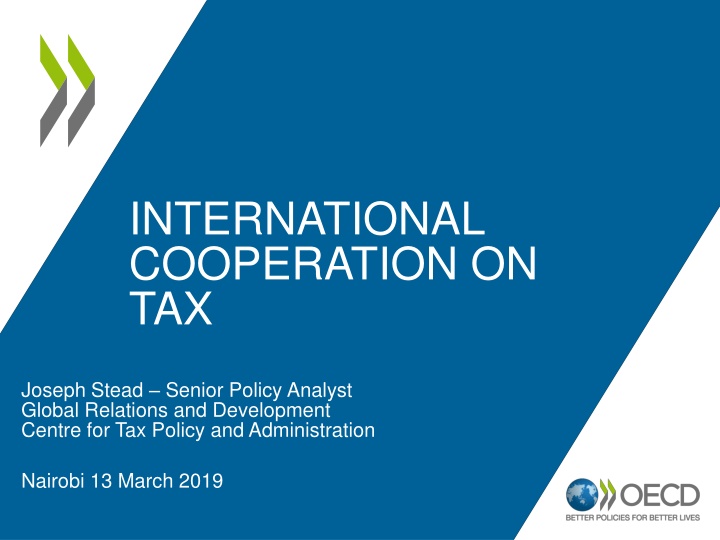


![Town of [Town Name] Real Estate Tax Rates and FY 2024 Budget Summary](/thumb/62211/town-of-town-name-real-estate-tax-rates-and-fy-2024-budget-summary.jpg)

